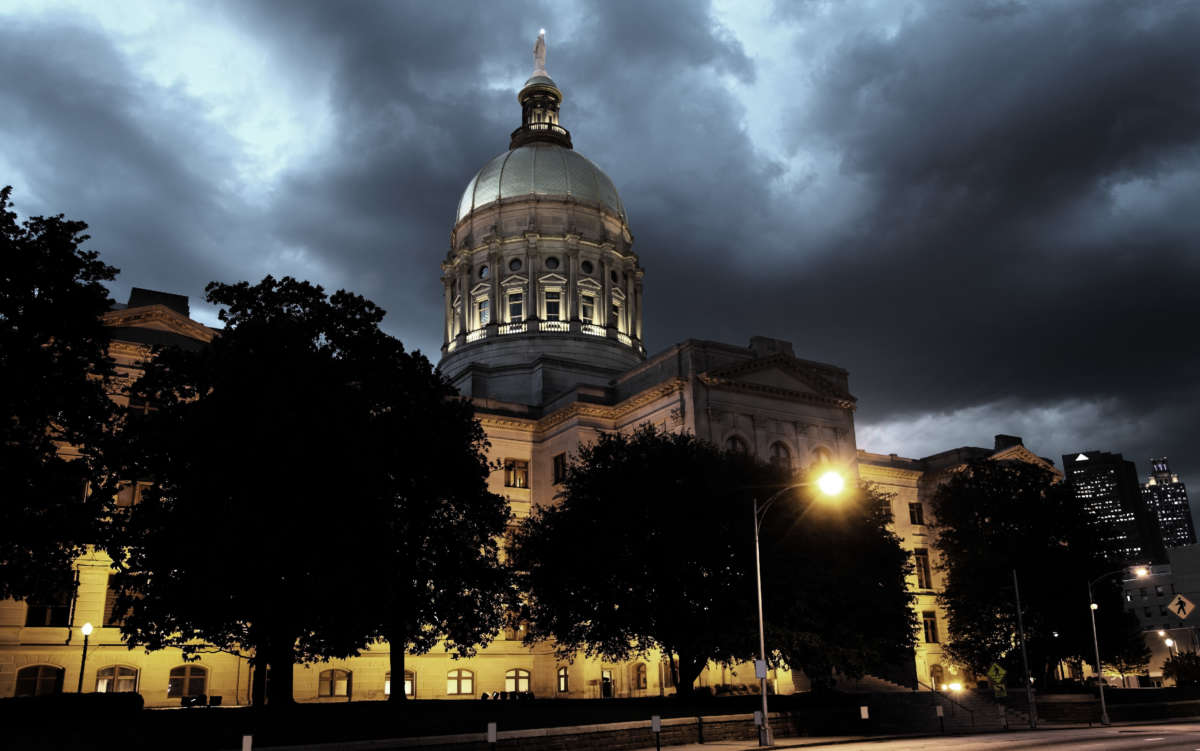Republicans in Georgia have proposed their own version of Florida’s “Don’t Say Gay” bill, days before the deadline to submit new proposals in the legislature.
Florida’s “Don’t Say Gay” bill passed the state Senate this week. If Gov. Ron DeSantis (R) signs the bill, it will ban primary school teachers from discussing LGBTQ issues in classrooms, and restrict the ways that gender and sexuality can be discussed in high schools. LGBTQ advocates say that the bill will have disastrous outcomes – including preventing students from discussing issues that matter to them, and making it easier for students to bully their LGBTQ peers in the hallways.
The version of the bill that is currently being considered in Georgia differs slightly from Florida’s bill, in that it places restrictions on private schools in the state that receive government funding. But like Florida’s legislation, the bill would ban teachers from talking about “sexual orientation or gender identity in primary grade levels or in a manner not appropriate for the age and developmental stage of the student.”
Opponents of the bill were quick to criticize the group of 10 Republican legislators who proposed it at the last minute, some of whom are running for higher office in the state.
“GOP, get it through y’all’s heads that LGBTQ Georgians are not piñatas to bash in your campaign ads,” said state Rep. Matthew Wilson, an openly gay Democrat in Georgia’s House. “Your performative cruelty won’t erase us.”
The bill is “a throwback to decades of stigma that existed in the past,” said Jeff Graham, executive director of Georgia Equality. “It’s a concerted effort to roll back the clock and try to eliminate LGBTQ folks from public life.”
Although the bill has little chance of being passed by the time the legislative deadline hits, legal experts have warned that the bill could instead be offered up as an amendment to other bills, including to a separate piece of legislation that seeks to ban the teaching of so-called “divisive concepts” (such as the history of racism in the U.S.) in public school classrooms.
“The danger [of the bill] is lessened given the timing, but nothing is final ’til the gavel comes down on sine die,” said Anthony Michael Kreis, a law professor at Georgia State University. “Beware the Christmas Tree Bill at the last hour.”
Join us in defending the truth before it’s too late
The future of independent journalism is uncertain, and the consequences of losing it are too grave to ignore. To ensure Truthout remains safe, strong, and free, we need to raise $29,000 in the next 36 hours. Every dollar raised goes directly toward the costs of producing news you can trust.
Please give what you can — because by supporting us with a tax-deductible donation, you’re not just preserving a source of news, you’re helping to safeguard what’s left of our democracy.
